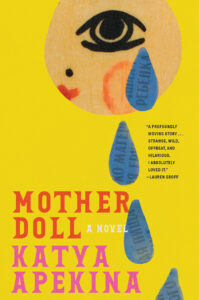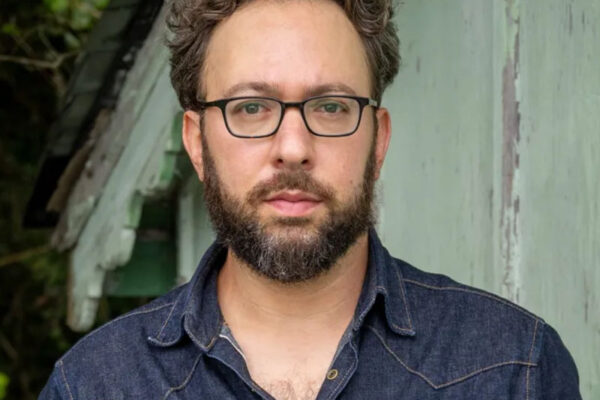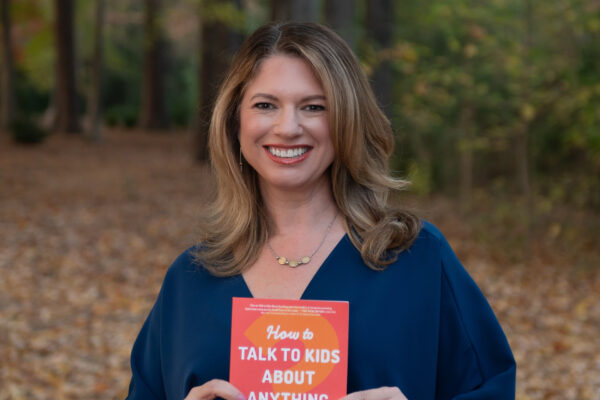What if we could speak to our deceased ancestors? What if they could answer back?

For a decade, Katya Apekina, MFA ’11, had on her laptop the Russian journals of her grandmother, who had chronicled her escape from Poland during World War II and her life in the Soviet Union. “For many years, I could never read them,” Apekina says. “I was unsure whether I’d be able to take on all of the terrible things that happened to her and her family. But on the night of her funeral, I finally opened them.”
Apekina, herself fluent in Russian, started translating the journals, notating questions and comments in the margins with things she regretted never asking her grandmother. “I felt like I was having a very honest conversation with her, even though she was dead,” Apekina says. “All these things I’d been afraid of, or carrying internally without knowing where they came from, I began to understand a little more. Mother Doll sprang from there.”
While the novel, Apekina says, is not in any way autobiographical, it does take on the concept of generational trauma — and the burden one generation can carry to the next. Mother Doll spans two centuries, three continents and five generations, and it features a couple of ghosts, a funny chorus of spirits and a reluctant medium. “I wanted to tell a story that felt as if time were like a column — where time is happening all at once,” she says, “as opposed to a sprawling generational narrative.”
The story opens in present-day Los Angeles, where the main character, Zhenia, finds herself adrift and with a pregnancy neither she nor her husband really want. Her beloved grandmother is dying across the country in Boston; she has a difficult relationship with her own mother; and she’s working as a Russian interpreter at a hospital, but what she really wants to be is an actress. That’s when she gets a phone call from Paul, a medium who claims to be channeling Zhenia’s great-grandmother Irina, a Russian revolutionary who is stuck in some sort of spiritual limbo but needs her story known. But because she’s speaking to Paul in Russian, he doesn’t understand a word of it.
What follows is a novel at once funny, poignant and profound, with more twists, turns and time warps than a funhouse mirror. Apekina layers a story on top of a family narrative on top of an epic. Like Russian matryoshka dolls — each one distinct yet fitting perfectly inside the next — Mother Doll’s plot points are knitted together masterfully. They’re sprinkled with insights on the choices — profound and mundane — that are made every day in our lives, our past lives through our ancestors, and in our future lives through our children.
Maybe we can’t talk to our ancestors directly, but we can always learn from them. In driving that point home, Mother Doll takes the reader on one wild ride.


